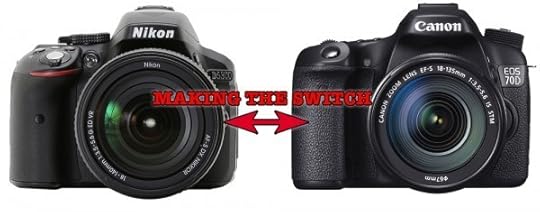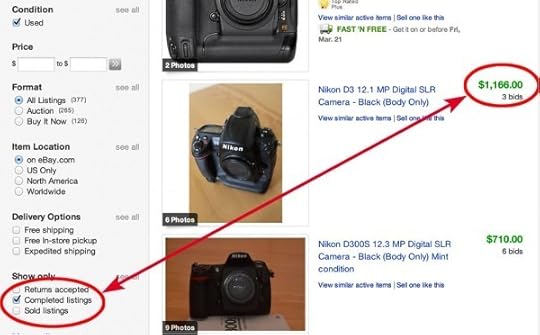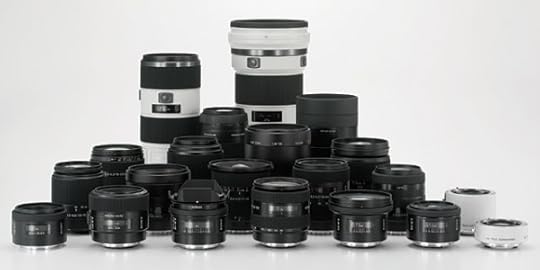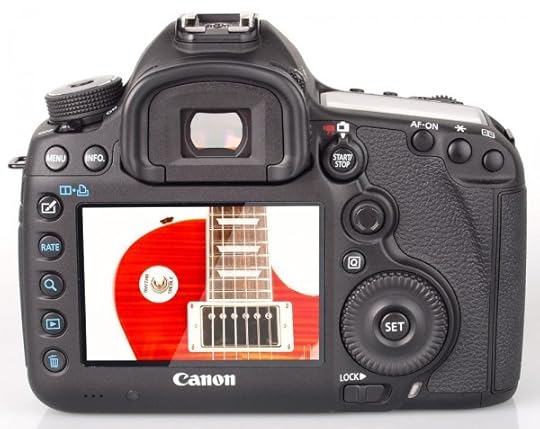Making the DSLR Switch
Whether you are thinking of moving from a Nikon to a Canon or Pentax to Sony, there are a few things you should take into consideration when contemplating the move to a new camera system. As someone who goes from camera to camera for work reasons, I have some first-hand knowledge on what it takes to make the move.
First off, you should really do your homework and consider why it is that you want to move. Are you looking for features that your brand doesn’t offer or are you just growing bored with the photos coming from your camera and think a switch will re-invigorate your photography? If it’s the latter, you might want to reconsider a camera switch and look at other forms of inspiration. Gear is almost never the answer for getting better photos. That being said, let’s look at a couple of considerations.
Number one on the list has to be the cost of making the switch. Cameras are very much like cars in that they start losing value the minute they leave the store. If you are thinking that you will be able to finance your new camera by selling your old one, you might want to check again. Unless you are stepping down by moving from something like a Nikon D3 to a Canon 70D, you will have a tough time covering your expenses by selling your old gear. My advice is to check on eBay and don’t go by what you see cameras listed for. Instead, check the Completed Auctions section to see what they are actually selling for. This is the true market value of your camera.
Number two on the consideration list is all about lenses. If you only have one lens for your current camera then you are in pretty good shape to make a move. If however you have lots of lenses and want to have the same optical choices in your new camera, you will be looking at a pretty serious investment. Most of us photographer types don’t go out and buy a camera and all of our lenses all at once. It’s usually a much more organic process where lenses are purchased over time until we have a wide assortment to work with. Having to replenish a large lens collection quickly can far outstrip the cost of a camera body. When considering a move, determine what focal length is your real workhorse and start with that and then add more lenses over time.
Speaking of lenses, you should consider the sensor size that you are moving to and how the lenses work with it. If you are going to a Canon camera that uses a cropped APC-C sensor like the EOS Rebel T5i, you will have the benefit of using both EF-S and EF lenses on your camera. This is not the case when moving to a full frame sensor like a 5D MK III you will be restricted to EF only lenses. Nikons aren’t quite as restrictive. Cameras with a DX sensor like the D5300 can use the standard F-mount and DX lenses. Full frame cameras like the D610 can use F-mount and DX lenses but the camera will automatically crop the scene whenever a DX lens is attached to the body. Whatever your new camera choice, be sure to investigate your lens options so that you get the most bang for your buck.
One of the biggest fears I hear from people who are considering a switch is the need to learn a new camera system including menus and buttons. As someone who switches camera systems all the time, I can tell you that it isn’t nearly as daunting as you might think. Sure, there will be a lot of things that you will have to re-learn but the truth is that most all cameras are built pretty much the same way. They all have shutter release buttons, mode dials, dials for switching Shutter and Aperture, setting ISO, previewing images, etc., etc. The easiest way to make the move is to spend some quality time with an owner’s manual or maybe a good camera specific book. Just remember that all cameras perform the same basic function so it shouldn’t take long to make the transition as long as you have a good knowledge of the basics of photography.
The bottom line is that switching systems can be expensive and have a bit of a learning curve. The biggest way to handle it is to do your research. Look at sites like DP Review, talk to friends, and find some really good reviews that will let you know what the pluses and minuses are of the system that you are considering, and don’t forget the lenses.
A friend of mine once told me that buying a new guitar wouldn’t make me a better player and that’s true. But if it inspires me to practice more, it’s money well spent. To that end, switching cameras won’t necessarily make you a better photographer but if it inspires you to go out and shoot more then who’s to say that it’s not worth the time trouble and expense.
Related posts:
Making the Switch to Lightroom
Upgrading to a Full Frame Camera? You May Have to Leave Your Old Lenses Behind
Canon Releases New DSLR Cameras for the Amateur Market






Jeff Revell's Blog
- Jeff Revell's profile
- 6 followers







